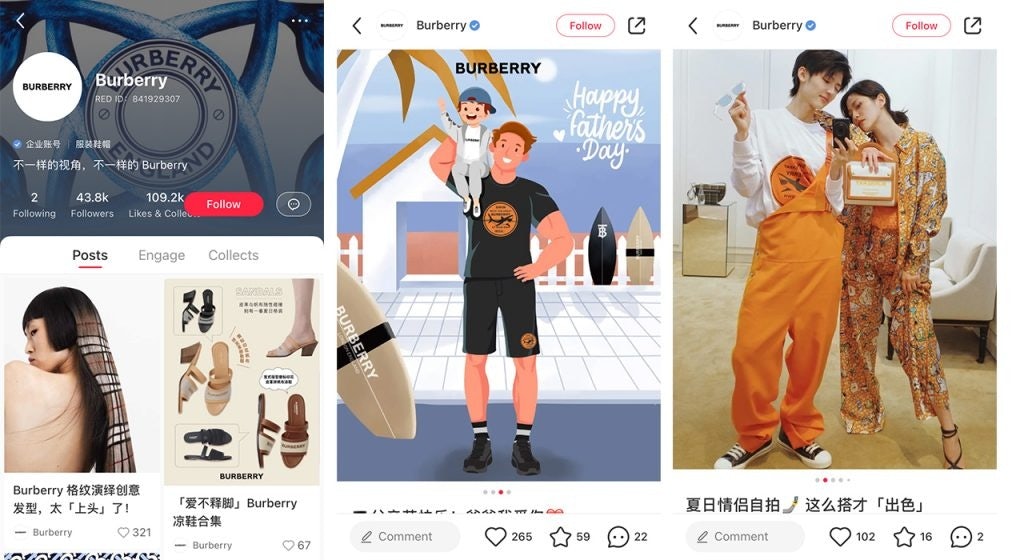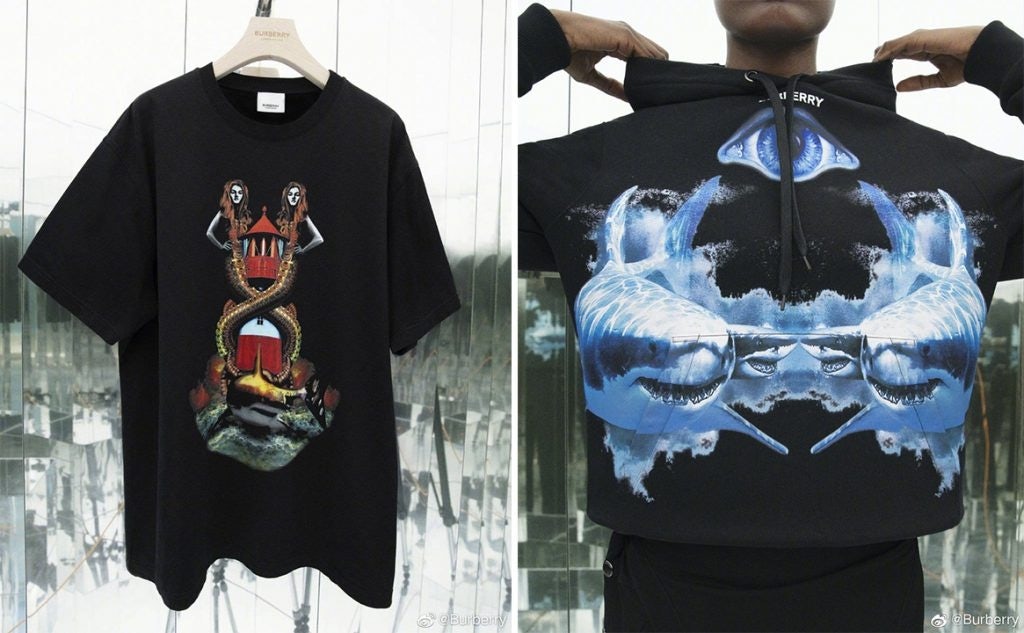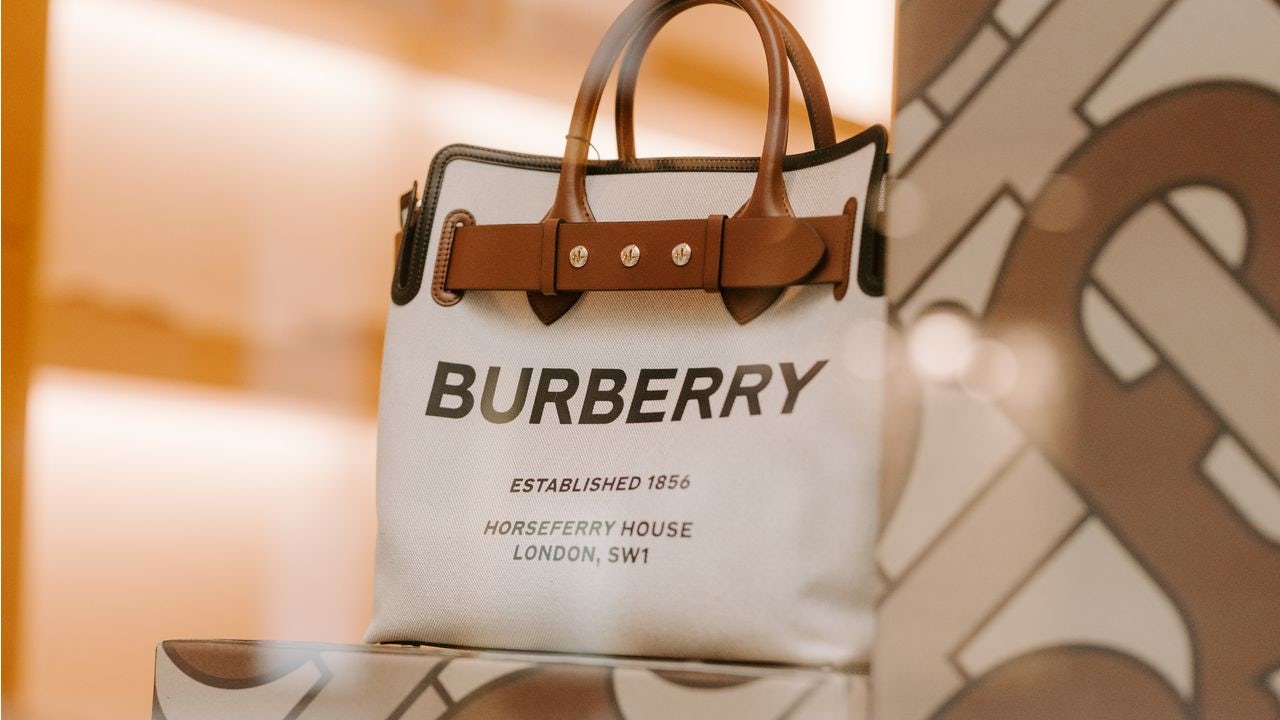Key Takeaways:#
The ambiguity around Burberry's name meant it has struggled to build equity on Chinese social media and via search engines.
Since its blacklisting, Burberry has been silent on platforms that create debate but more visible on networks less concerned about political stances.
Tier 2 cities and beyond are likely to be the brand’s new hunting ground.
The shock departure of Burberry CEO Marco Gobbetti has left the fashion world speculating on whether its creative director, Riccardo Tisci, might also up sticks and leave. However, as one of the brands recently boycotted in China, the luxury house’s current position on the mainland is surely as critical as internal leadership woes.
In March, the British luxury house, which has close to ten different names in China including 巴宝莉 (or Ba Bao Li) and 博柏利 (Bo Bo Li), was embroiled in the ongoing cotton crisis. As a result, Tencent halted its Honor of Kings partnership with the brand (Burberry had just released two exclusive skins for the game’s China players), and brand ambassadors Zhou Dongyu and Song Weilong announced they would no longer work with the company.
Since then, the digital pioneer has gone quiet on China’s biggest microblogging site, Weibo. Its 1.63 million audience was used to seeing daily posts; post-blacklisting, its none at all. Plus, it failed to livestream its Spring 2022 menswear show — although that still earned 86 million impressions thanks to amplification from media outlets.
No doubt, this is proof of a continued desire (or interest at least) in this latest iteration under Tisci but still, with the mercurial Gobbetti's mid-strategy departure, things have now become even more opaque for the label. The Financial Times stated that the news shed almost 10 percent of its value — roughly £1 billion in market capitalization.
As global brands accelerate their engagements with Chinese consumers, Jing Daily investigates what Burberry’s next steps in China will be.
Conquering your China name#
The changes that Gobbetti and Tisci initiated were long overdue, but the ambiguity around the company’s name meant it faced complications in the China market from the off. Jonathan Travers-Smith, CEO and founder of marketing agency Hot Pot China, explains that there is little coherency across Burberry's registered and unofficial names.
“With this situation in place, building equity on Chinese social media and via search engines can be a huge headache,” says Travers-Smith, who advocates for clients to go through a robust Chinese brand naming process before setting foot in the market. Furthermore, research indicates that Burberry’s unofficial names on platforms like Baidu can generate even more traffic than the official name, especially among older demographics.
More recently, the company committed to 博柏利 or BO BO LI, and Travers-Smith admits the brand is “slowly building valuable equity behind this name.” Earlier this year, Burberry was also granted a preliminary injunction against Xinboli Trading (Shanghai) Co., Ltd, the owner of its Chinese copycat label, Baneberry, helping it address its counterfeiting issues in the country.
Digital prowess must not compensate for brand values#
With these naming issues slowly coming under control, Burberry has continued to push digital initiatives on the mainland, from its WeChat-powered social retail store in Shenzhen to its innovative Father’s Day cards. As managing partner at strategic communications company eCLAIR, Chen Liang admits that Burberry is among the first batch of global brands to “participate in livestream, collaborate with online games, and digitize its offline stores.”
While the brand is silent of late on platforms that may create debate, such as TikTok and Weibo, it has been more visible on the lifestyle platform Little Red Book where users seem less concerned about political stances. And despite the backlash, in May, Burberry launched a slew of physical pop-ups in Hong Kong, Changsha, Shanghai, Beijing, and Nanjing to promote its Olympia bag and push digital connectedness.

Liang states that they were “super tech savvy” and the pop-ups had “AR functions so the statue could move.” Although Chinese consumers now expect new and innovative digital experiences from Burberry, the roll out’s conviction was less impressive. “We couldn't quite understand how the concept linked with the new bag and back to the brand. Also, the bag was being held up as a celebration of women's power, which is groundless. Consumers know it is just leveraging a growing trend for shoulder bags.”
Until now, Burberry excelled at folding its heritage into its digital advancements. These days, China's shoppers are noticing its lack of storytelling and indistinct values — both of which are vital attributes for younger audiences, in particular. Now, research from Liang’s agency shows that young post-85-born shoppers in China are starting to bore of consumerism.
This means they are becoming immune to what she terms “three-pronged tactics” or strategies such as women's empowerment, creating scarcity, and, lastly, using celebrities and KOLs. “These concepts are all good, but what do they have to do with the brand?” Should these younger consumers instrumental to luxury consumption fall off, luxury will face damning ramifications globally.
What is Burberry’s future in China?#
After a rebound in sales since last December, driven by a strong recovery in China (and South Korea), Burberry upgraded its full-year profit forecast in March. However, the challenge for luxury now is to acquire new fans while retaining older ones. Fan Tu, the account manager at Hot Pot China, outlines how, on the whole, Chinese consumers follow brands rather than designers (she counts Phoebe Philo as the exception).
With this in mind, Tu believes the brand implemented a list of recent revisions to attract newer Chinese fans: “The recent in-house changes, such as the new designer, a logo reboot, monograms, and brighter colors and fabric collages all align squarely with the tastes of the current younger generation.” And, she adds that with the Tier 1 city younger urban elite likely to prioritise Celine or New Bottega, this means “Tier 2 and beyond” are likely to be its “new hunting ground.”
Additionally, the older generation is likely to find that current designs conflict with the Burberry they know and love. Liang agrees, highlighting the shift from something “very british and elegant, like a whispering luxury” to designs that are “too loud” and so different that “nothing looks like Burberry.” She points out the “limited” remit of the localized team which can only select celebrities and adapt content for different platforms. “From a design or product perspective, Chinese consumer needs aren’t being communicated back to headquarters, so we see a detachment there,” she says.

With the fallout from the Xinjiang cotton crisis now being seen as a US foreign policy crisis, every luxury leader wants to know how they will be affected. Travers-Smith suggests that political storms such as this flare-up can hold headlines for a number of days. Although media exposure was “significant both in and outside of China,” he thinks it won’t trickle down to the loyal Burberry consumer. “Typically, brand fans will be aware of the political context but very few will be affected deeply enough to change their luxury consumption habits.”
But what of the new fans? The company has often fallen short in its storytelling and it is ignoring its latest issue by keeping Weibo dark. To acknowledge it would refresh netizens’ memory, and any statement might cause anger, if not in China, then outside. With the Biden administration applying continued pressure, Beijing might well retaliate and Burberry is already in its sights. So, for now, it is staying firmly in the trenches.

